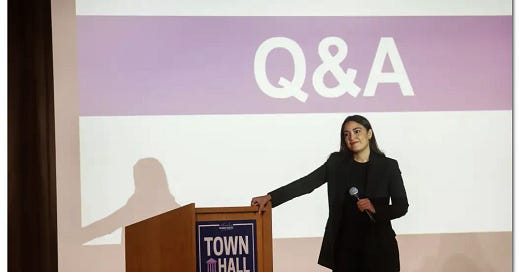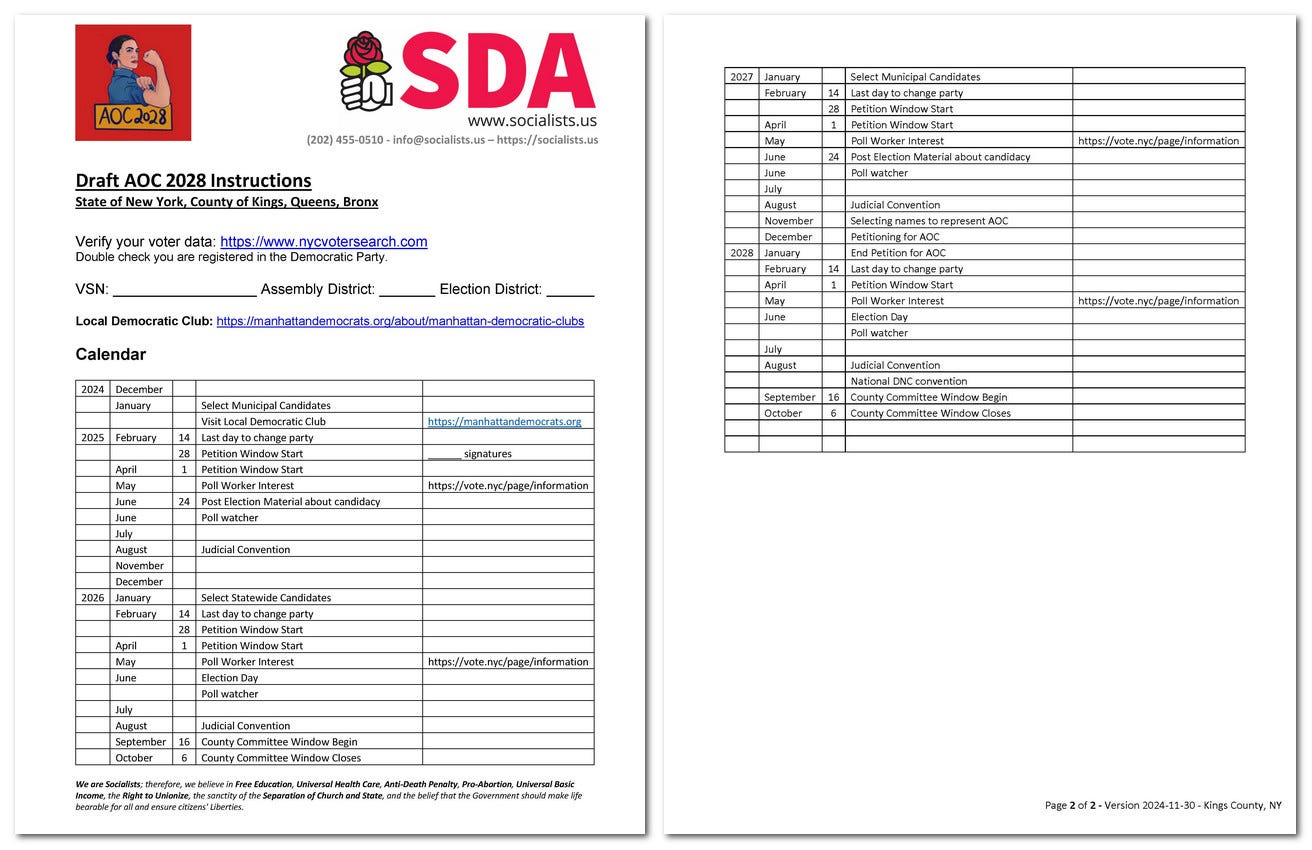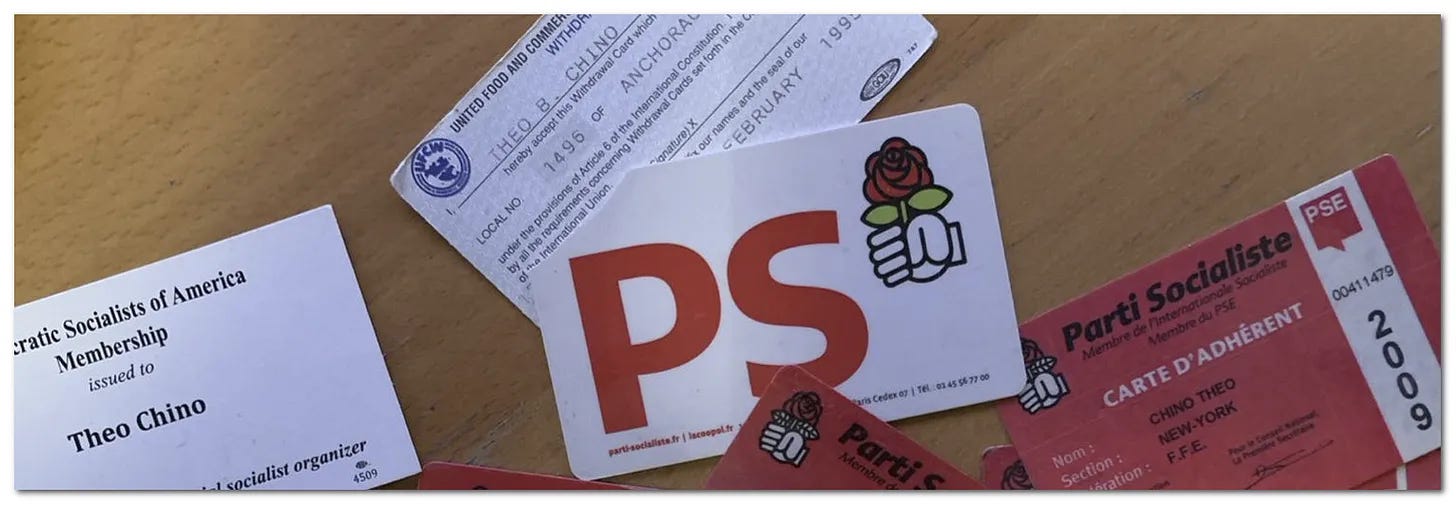WE are the grassroots—and WE decide what we want
Every morning, my inbox is flooded with emails asking me to donate money: to PACs, nonprofits, political organizations, or candidates. And yet…
Politics isn’t complicated. It simply takes the courage to knock on your neighbor’s door and start a conversation. It might be jarring or stressful at first, but it’s essential if we want to win elections.
Politics is about human connection—and those interactions are inevitably filled with drama: trust, jealousy, envy, competition, ambition, revenge, and more.
The American political system is designed to confuse and divide us. There are countless walls between groups—it's the classic tactic of "divide and rule."
Take, for example, the last AOC town hall—an event funded by federal dollars.
By law, she's not allowed to talk about campaigning at such events. These barriers are deliberately designed to prevent us from organizing effectively.
And so, what we’re left with often feels like a chaotic shouting match. I’ve built a reputation for raising my voice—loudly.
When we, as activists, grow frustrated, we’re often left with no other option but to heckle politicians.
Just look at the misogynistic headlines from the right-wing New York Post when that happens.
It becomes a vicious cycle. Politicians don’t like being heckled, so they sideline the activists. The activists become more frustrated, so they escalate. Politicians dismiss it as just “part of the job.”
With Draft AOC 2028, my goal isn’t to teach people how to be disruptive during meetings.
It’s to disrupt the system—legally and democratically—by helping people get elected to local party positions. That begins with understanding how to decode the electoral calendar.
Back in 2018, I was part of an AOC supporter WhatsApp group as a Socialist.
That group included AOC herself, Saikat Chakrabarti, Tiffany Cabán, and many other grassroots activists, and political consultants. When I ran for office against a client of one of those consultants, I was blacklisted and slandered.
This pattern happens with a log of unpaid volunteer activists.
The American political system runs on paid consultants, reducing volunteers to powerless, symbolic roles.
Whenever a volunteer shows too much initiative, they’re either offered a job to co-opt their energy, sidelined to neutralize their influence, or pressured into hosting fundraisers—only to be exploited for their connections and labor.
This is NOT how politics is supposed to works.
I’ve alienated nearly every politician in New York City—and many nationally—because while they claim to be Socialists, they don’t understand where Socialist ideas come from. They grasp the surface, but not the substance.
At the town hall, instead of heckling AOC to ask why Draft AOC 2028 is been sidelined, I chose to confront the hecklers themselves. I’ve attended many of these AOC events. I know the drill.
I’ve been a member of the French Socialist Party since 2004, organizing Socialist meetups for decades. As a European Socialist, I’ve also helped organize several Ben Franklin Socialist Circles, which have been active for over 140 years.
Globally, Socialists debate and develop our platform together. It’s a collaborative, evolving process based on monthly meetings and real-world issues.
Historically, there has always been a divide between international Socialists and American progressives—until Bernie Sanders appeared.
Most global Socialists have avoided engaging with U.S. politics because, as shown in an Australian documentary, the United States has been an unreliable partner.
Why? Because our grassroots political class lacks real political education.
America has always had a vibrant far-left and a strong liberal center—but it has never developed a true Socialist or Social Democratic movement, despite the fact that many progressive American ideas are rooted in those very traditions.
Building a Social Democratic movement in the United States will require a two-way educational effort: teaching the world how our system of 50 semi-sovereign republics functions, and teaching Americans how Social Democracy operates across the globe. I delve into this challenge in my Social Democratic newsletter: socialists.substack.com/p/my-draft-sda-april-newsletter.
Being a Socialist in the U.S.—and getting pushed to the sidelines—is almost a rite of passage. But instead of pandering to staffers who are focused on preserving their own power, I chose a different path. I built my own movements: Rep My Block, Draft AOC 2028, and the Socialist faction within the Democratic Party.
I tried explaining all of this to AOC’s campaign manager, Oliver Hidalgo-Wohlleben, and his team, but having been trained in the American system, he continues to operate within its broken, performative, and fundraising-driven model.
The real power lies with us—the individual activists. And the first step is simple: watch and share the County documentary at https://pbs.org/show/county.
Then, organize with groups working inside the Democratic Party, like Progressive Democrats of America, Progressive Victory or Social Democrats of America.
Most importantly, register at https://draftoac.us and set up your profile at https://repmyblock.org.
American Social Democrats have long been torn between joining the liberal wing of the Democratic Party or protesting from the far left out of frustration. It's time we change that—for good.
If you want to understand the toxicity of the consultant class, read last week blog entry titled:
Theo













